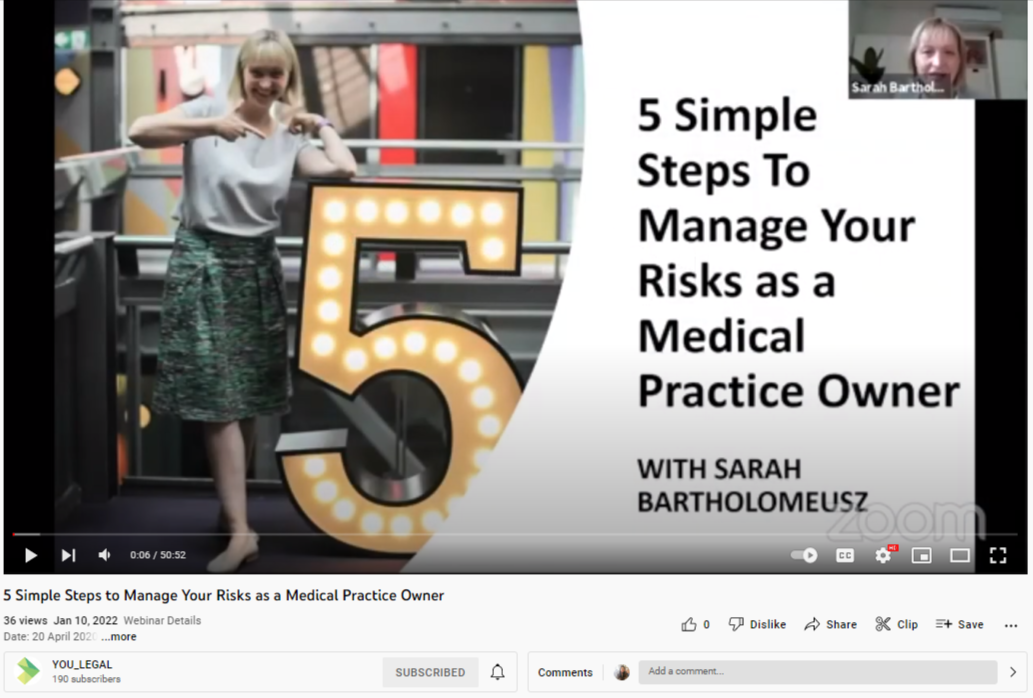5 Simple Steps For Risk Management in Healthcare

1 Hour
Get a blueprint for your medical practice
Sarah Bartholomeusz
Meet the host

Does this sound like you?
Do you ever lose sleep over worrying about the unknown risks in your practice?
Do you think about what might happen if a claim came through the door that you had never anticipated in your wildest dreams?
Do you walk around thinking it would be good to get some clarity around the different areas of risk that exist in your practice?
Do you want to grow a profitable practice and not be surprised by unknown risks coming out of nowhere?
Who is this webinar for
MEDICAL PRACTICE OWNERS
This webinar is designed for medical professionals who want to learn more about how to understand and manage the risks and obligations associated with owning a medical practice.
DOCTORS
Attendees will learn about different types of risks, how to identify and assess them, and strategies for mitigating them. We also provide plenty of real-world examples so that you can see how these concepts are put into practice.


What will you learn in the webinar?
.svg)
Our webinar will provide you with the knowledge and tools you need to effectively manage risk in your healthcare organisation.
.svg)
You will learn about the various types of risk that can impact healthcare organisations, and how to identify these risks.
.svg)
You will also learn effective strategies for mitigating and managing risk, as well as the steps you can take to manage those risks.



Why do medical practice owners need to follow these Risk Management steps in Healthcare?
It is important to manage risk in all types of organisations, but it's especially important in healthcare because of the impact this can have on patients. A good healthcare risk management plan can reduce patient health risks, as well as financial and liability risks. Here are 3 key reasons why medical practice owners need a risk management plan to follow:
.svg)
To protect patient records and have vital data security to keep patient information protected against cyberattacks or data breaches.
.svg)
To ensure all mandatory regulations are being complied with
.svg)
To keep up-to-date with changing legislation affecting healthcare and how practices operate





